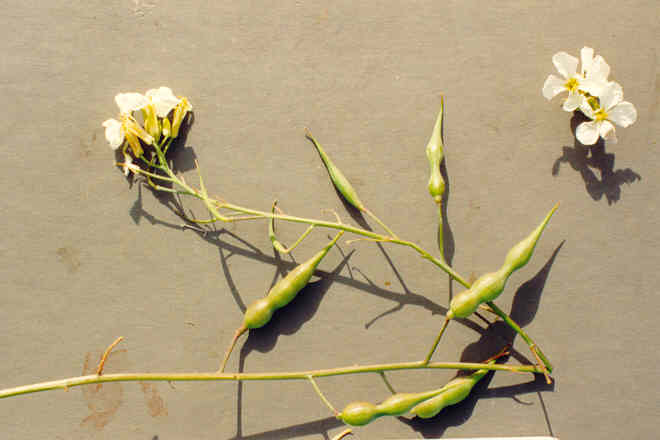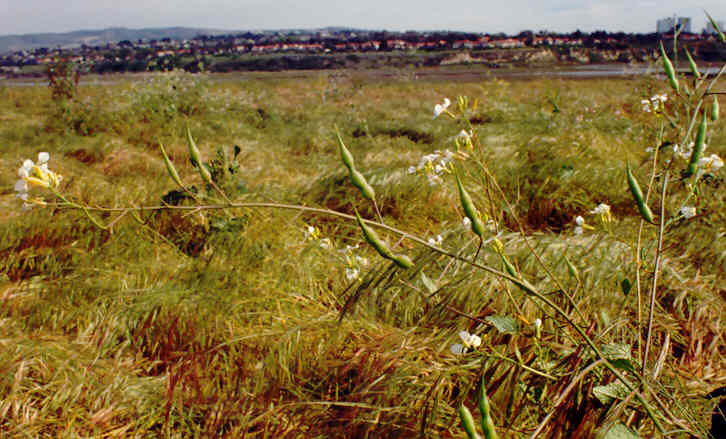
 |
Raphanus
raphanistrum x sativus
Brassicaceae (Mustard Family)EuropeRaphanus
Hybrid
|
Plant Characteristics:
Annual or biennial, erect, generally scabrous, taprooted, 4-12 dm.; hairs
simple rigid; stems generally branched, especially above; lvs. basal and lower
cauline petioled, generally pinnately lobed to compound, 6-20 cm., terminal lobe
or lflet. widely ovate to round, larger than lateral lobes, toothed; upper
cauline short-petioled to sessile, +/- dentate or few-lobed; infl. many-fld.;
bracts 0; fls. purple to white, petals long-clawed, 15-25 mm.; sepals erect,
inner pair sac-like at base; fr. indehiscent, not or +/-longitudinally grooved,
constricted between seeds, 3-6 cm., including beak, 5-10 mm. wide,; pedicel
spreading to ascending; seeds in 1 row, +/- spheric.
Habitat:
Occasional weed in waste places, fields, etc.
Feb.-July
Name:
Greek, raphanos, quick
appearing, because of rapid germination of seeds.
(Munz, Flora So. Calif. 297).
Raphan-istrum, evidently a
combination of Gr., raphanos, cabbage
and Latin, raphistrum, the wild
turnip. (Jaeger 217). Latin, sativus,
that which is sown. (Jaeger 228). In
other words, the radish species that is cultivated.
There are other species that are not used. (John Johnson).
General:
The hybrid occurs along with R.
raphanistrum, and R. sativus in
the area westerly of the Delhi Ditch. It may be that in this area there is no pure R.
sativus as most plants have the
marked constrictions between the seeds that is characteristic of R.
raphanistrum but the pink, purple and white flowers of R. sativus.
R. raphanistrum, with its yellow, or yellow with red-veined fls. and
long constricted siliques is easier to distinguish.
(my comments).
Text Ref:
Hickman, Ed. 432, 434; Munz, Flora
So. Calif. 297.
Photo Ref: March-April 94 #
23,24.
Identity: by R. De Ruff, confirmed by John Johnson.
First Found: April 1994.
Computer Ref: Plant Data
465.
Have plant specimen.
Last edit 6/7/05.
 |
April Photo